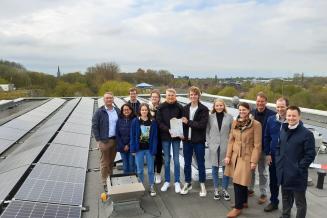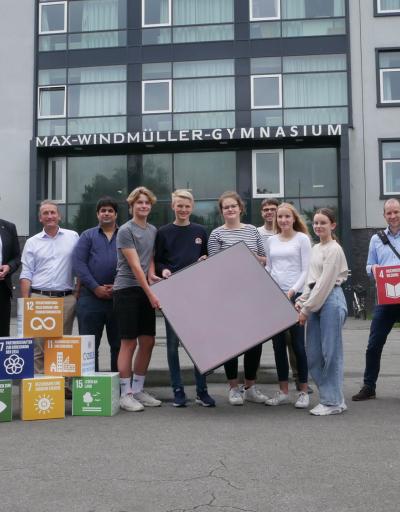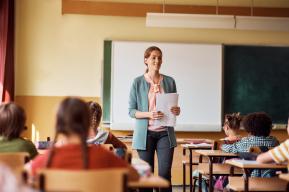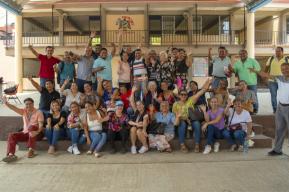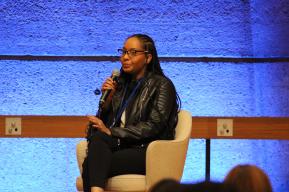“Should the school install solar panels on the roof?” In most schools, such questions are answered by the headmaster in consultation with teachers. Since 2017, this is not the case at the Max-Windmüller-Gymnasium in Emden in Germany. At this school, matters like that are debated in the “climate parliament” and the “climate council”. In these bodies, student representatives from all grades debate and decide climate-related issues. Based on decisions of the climate parliament, the school has, for example, mounted solar panels on the roof, conducted workshops on the relationship between eating habits and CO2 emissions, and installed paper-saving electric hand dryers in the bathrooms.
Through the climate parliament, the students approach learning about climate change differently, as Laura Oldewurtel, student and president of the climate parliament testifies: “Normally, we learn about these things, write a test and then we go on to the next topic. With the climate parliament, we are always engaged with the topic and deal actively with it.” Some of the teachers include topics discussed in the climate parliament in their regular classes and aim to teach in teams and across subject disciplines to create relevant learning experiences for their students. Student Oldewurtel: “Our activities are fun, everyone is engaged, because we do what everyone wants.”
The collaboration between teachers and students of different grades is key for the climate parliament and has a positive impact on the school’s atmosphere as teacher and focal point for the climate parliament Kai Gembler affirms: “I may be older and hold an academic degree, but what is interesting is the interaction of teachers and students when we have a common interest.” The students’ role in the decision process ensures that new regulations or facilities are embraced easier by the students and that these changes are tailored to the students’ needs and abilities. The students not only bring about changes regarding climate matters at the school, but they also learn about democracy through interacting in democratic decision-making bodies and processes. Teacher Gembler: “The students get a feeling of agency, responsibility, and trust in themselves all of which are important to not only provide them with knowledge, but to prepare them to be engaged and responsible global citizens”.
This is also why to teacher Gembler, it is important to consider the climate parliament as an important form of teaching and learning: “There's been nothing we have done in the past few years that has promoted talent as massively as this project,” he underlines. Student Oldewurtel he explains, “writes emails to the students, the city, and manufacturers, plans events, finds out about climate issues, gives talks, keeps her classmates up to date, writes reports, and networks. She does a whole lot of things that I think are important for future leadership positions.”
The climate parliament also lets the student reflect on questions around climate change for which there is no easy answer, for example: Should there still be in-person exchanges with students from other countries for which it is necessary to take the plane? The climate parliament is a forum in which such questions can be looked at from different angles and in which students can develop an informed decision on them.
This innovative approach, which has already started spreading to other German schools, allows students to take part in the school decisions and lets them experience ownership of the new facilities and procedures as well as teaching and learning taking place at their school.
